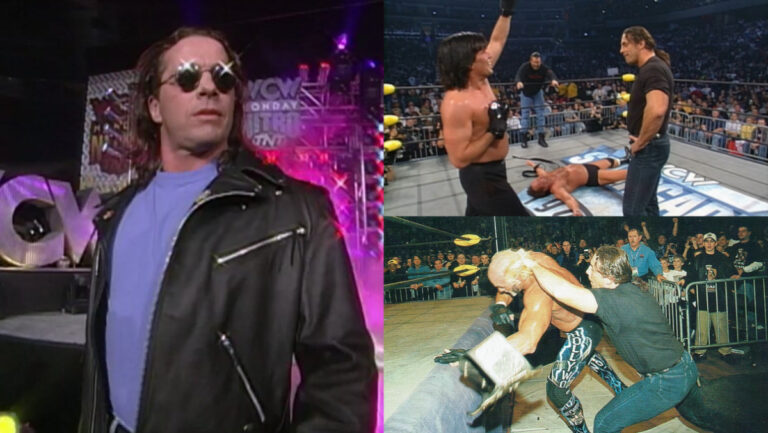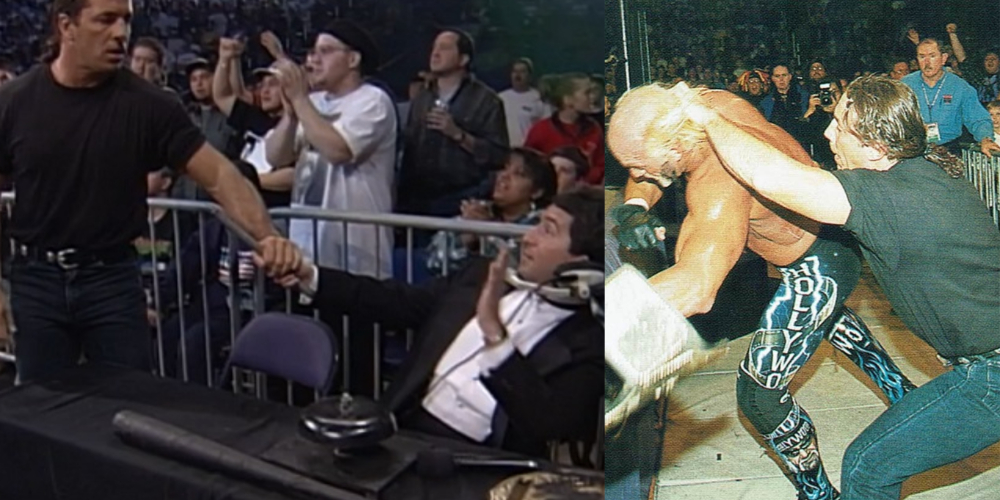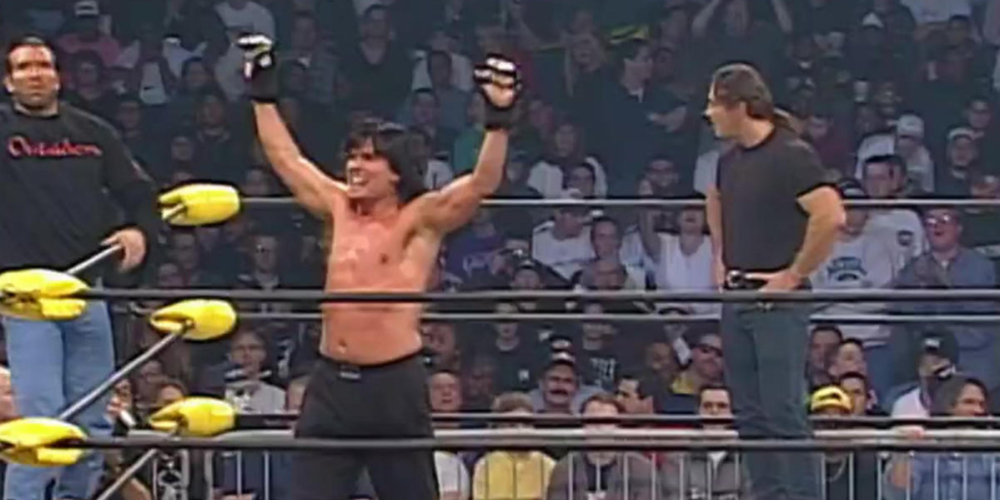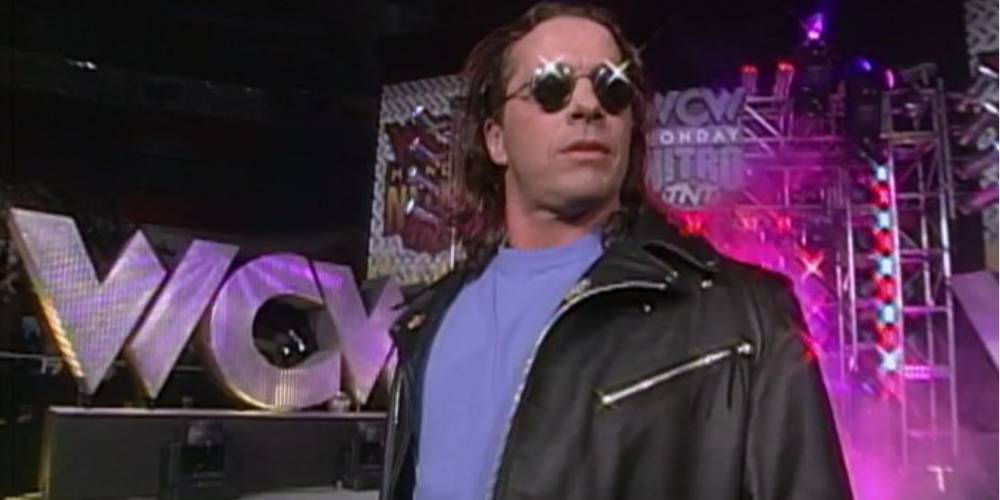
Though WWE’s retelling of wrestling history has not been too kind to the legacy of WCW, there are certain undeniable truths from that time. One of them is that 1997 was a white-hot year for the promotion.
The New World Order caught fire in 1996 and rode high into 1997 as WCW continued to tell a wide range of stories with one of the deepest rosters in pro wrestling history. Starrcade 1997 looked to be a crowning achievement with a star-studded PPV card that had enormous buzz around it.
Kevin Nash and The Giant would have a big man war. Larry Zbyszko and Eric Bischoff would blow off their heated non-wrestler feud in a novelty match. Most importantly, Sting was set to blow off a year and a half long angle with Hollywood Hogan.
The fact that WCW signed Bret Hart immediately before this PPV should have been a crowning achievement that added more momentum going into 1998. However, there’s a real argument that it instead sabotaged the biggest event in company history and foretold WCW’s demise.
Bret Hart’s Involvement Contributed To Sting Vs. Hollywood Hogan Unraveling

There’s no two ways about it—the Starrcade 1997 main event match between Sting and Hollywood Hogan was a mess. Fans had waited through the launch of the nWo, Sting’s transition to his Crow persona that haunted WCW from the rafters, and Hogan’s reign of terror over the company. By Starrcade, the stage was set to pay it all off with Sting as the prodigal son, returning to the ring to take the title.
A variety of factors contributed to the match’s failings. Eric Bischoff infamously claimed that Sting didn’t show up ready—claiming that his failure to get a tan was just one sign he wasn’t in the right mental or physical place to become “the guy.” Something went wrong on a re-planned finish, too. Whether Sting or referee Nick Patrick were more at fault, Hogan won clean and decisively only for Bret Hart to nonsensically demand the match be restarted and officiate the do-over ending.
The execution certainly got botched, but even if it hadn’t, the idea of an unjust finish before Hart had to restart things (on dubious authority) was a huge mistake to muddy the waters of Sting having his crowning moment. The match should have been kept simple and straightforward to give fans the most satisfying moment possible, after which they could’ve allowed Hogan to get his heat back one way or another in the weeks to follow.
Bret Hart’s Involvement Hurt Larry Zbyszko Vs. Eric Bischoff Too

The story of Eric Bischoff vs. Larry Zbyszko at Starrcade 1997 should have been very simple and straightforward. This was a retired wrestler vs. non-wrestler match, which offered some intrigue and made reasonable sense in its creative context. It should’ve come down to Bischoff maybe getting in a shot or two, but mostly the Living Legend putting him in his place in a five-minute squash.
Instead, Bischoff mostly dominated with special referee Bret Hart seeming to help him at every turn. Finally, Bischoff went too far, using a steel plate to bolster a knockout kick at which point The Hitman nonsensically switched allegiances, beating up Bischoff and his corner man, Scott Hall. Finally, Hart proclaimed Zbyszko the winner by disqualification to put the confusing, ill-conceived farce of a match out of its misery.
How Bret Hart Should Have Been Used At WCW Starrcade 1997

There are two main ways in which Bret Hart may have been put to his best use at Starrcade. One would have been the delayed gratification of him simply having a presence, maybe cutting a short promo or coming out to celebrate with Sting to close the show to make his presence known without altering the course of the night.
Another option would’ve been to book Hart into a one-on-one match built to highlight his wrestling acumen and star power without distracting from the rest of the show. WCW had such a deep roster of fresh opponents for The Hitman who weren’t booked for the event like Booker T, Juventud Guerrera, or Chavo Guerrero.
Having Hart mix it up with one of these under-appreciated talents—making them look good before he submitted them with the Sharpshooter in a formula he’d used opposite mid-carders like Hakushi and Jean-Pierre Lafitte in WWE for years earlier —could’ve highlighted what Hart does best alongside the prestige of being able to say the event featured Hart’s debut match for WCW.
Signing Bret Hart should’ve marked a crowning Monday Night War moment for WCW as they welcomed a hot star who was arguably the most talented in ring performer in the world at that moment. Instead, he became a distraction, misused to the extreme in ways that neither he, nor WCW on the whole ever fully recovered from.